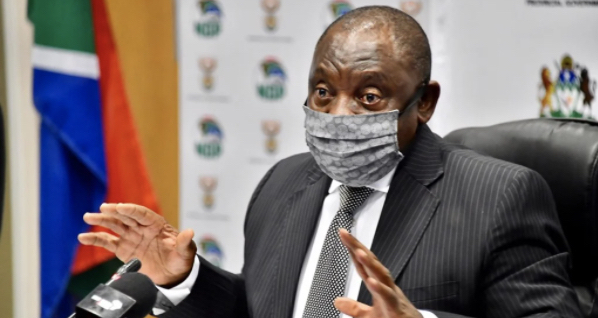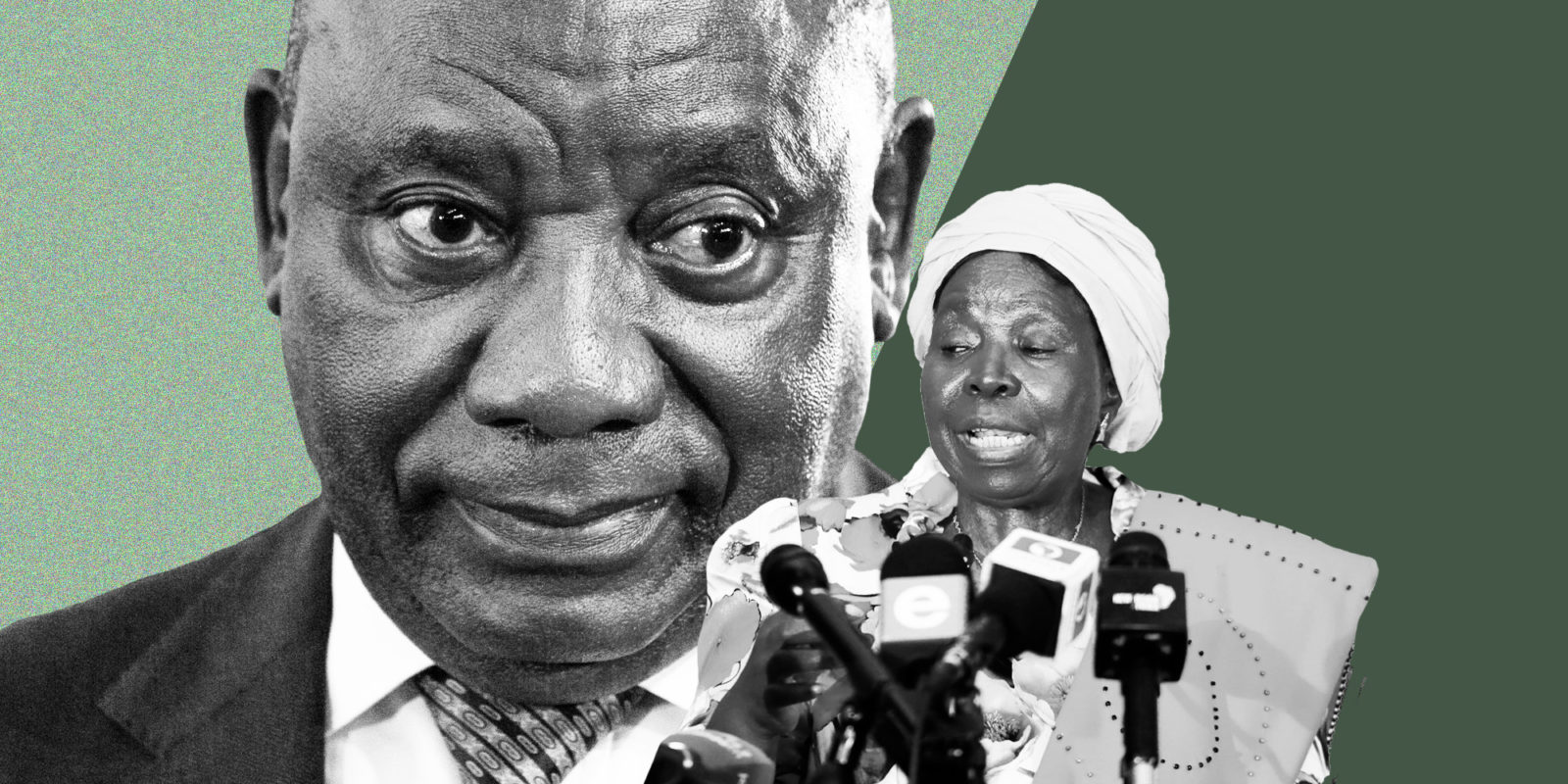News
Five clear markers for the ANC on the road to recovery
For decades the government has talked itself out of the tight corners of political and economic life. That time has passed.

Director, The Brenthurst Foundation

Research Director, The Brenthurst Foundation

While the government can slip and slide, nudge and wink, smile and chuckle, and talk in vague terms about ‘radical economic transformation’ and positioning the country for recovery, the room for manoeuvre has shrunk, forever.
It is astounding how quickly things become political, even global pandemics. It’s difficult to question the sensibility of the nature and duration of the government’s lockdown without being accused of being like Donald Trump, or the grim alternatives of Italy or the United Kingdom being thrown in your direction. Likewise, criticism of the government’s regulatory flik-flak on cigarettes risks censure of the Presidency, or if you are an eNCA newsreader, the humiliation of a grovelling apology.
Instead of being provided pandemic modelling data to interrogate or a detailed narrative for our post-Covid economy with which to engage, we are fed the ever-changing decisions of the opaque “collective” which we are implored not to criticise.
None of this is new, or unpredictable. Joseph McCarthy preferred to view everything in a Manichean world of communist and non-communist, where the value and voice of what you did or said was determined by your political species. Smear, self-censorship and scant regard for evidence ruled. Such practices conveniently lend themselves to control of the social discourse by deciding who is and is not a legitimate participant based on allegiance or identity.
South Africa’s special twist is, predictably, race. One over-excited defender of the “collective” wrote: “To add insult to f…ing injury, you now INSINCERELY [caps as supplied] want to WEAPONISE the bodies of the poor black subjects (not citizens) that you ordinarily do not respect by now pretending we are all collectively and equally let down by a set of sometimes arbitrary lockdown regulations.”
Never mind that public scrutiny is the very substance of competitive politics, the role of media and the job of civil society. Or that the author was, to borrow his phrase, “weaponising” name-calling instead of dealing with the arguments that were raised on their merits.
But there are some things that, unfortunately for the government or its propagandists, cannot be reduced to politics, or obscured by vulgarities, identity and polemic.
“Governments come and go,” warned Denis Healey, “but the rules of arithmetic and geography remain the same.” The ANC has long attempted to buck this reality, arguing – seemingly successfully, especially during the Mandela years – for a special status as a liberation movement.
The moral struggle against apartheid and the manner in which this had been resolved for a while gave South Africa pretty much a free pass in policy and political matters. Pretoria could establish cosy relationships with countries that did not share the democratic values or political sensibilities of South Africa’s Western friends and donors and they remained friendly, although they occasionally shook their heads. Excess and governance failure were similarly excused as part of the cost of not having a violent revolution, as were additions to the costs of doing business such as over-zealous empowerment stipulations.
So far, so good.
But thanks to the 10 lost years under former president Jacob Zuma, the liberation robe is looking a little worn. The arithmetic can no longer be avoided and Healey’s harsh reality has arrived to stay. Whatever stresses and strains the world is facing under the pandemic, South Africa’s situation is worsened by its shaky economic state – the result of decisions government has taken or omitted to take because they threaten constituencies wedded to rent – prior to the crisis. While the government can slip and slide, nudge and wink, smile and chuckle, and talk in vague terms about “radical economic transformation” and positioning the country for recovery, the room for manoeuvre has shrunk, forever.
No-one knows this better than Finance Minister Tito Mboweni who has the task of pulling out of the economic dive with several other pairs of hands clutching at the joystick.
He recently wrote on Twitter:
“Not so long ago, I was a free man, no political constraints. Then I agreed, voluntarily to join Government. Tjoooo! Free but not free!! You have to obey the majority/collective decisions! Sometimes it feels like swallowing a rock!”
There is naive hope in some quarters that borrowing from the IMF will ensure the ANC embarks on and sticks to reforms which otherwise would be domestically politically untenable. The danger, as ever, of such external agency is that these reforms are never locally owned but externally imposed and that as soon as the pressure changes, the conditions are as studiously ignored as they were once pored over.
Already the rating agencies act as a private-sector IMF equivalent, and the government is ignoring their pleadings, even if it is at the country’s peril.
There are instead clear markers for the ANC which have little to do with politics, party or, for that matter, race or gender, which clearly identify the only plausible route out of this crisis to growth and recovery.
Whether South Africa reaches these road markers should indicate to investors, and citizens, what the ANC’s intentions are and what country and economy they might expect.

Here are five such markers which investors, citizens, and, without wishing to weaponise them, the poor will want to see:
It is not too much, as both a first marker and sign of good faith, to ask that government make available the information on which it is basing its decisions on the COVID-19 lockdown and publish the minutes of meetings where these decisions are made to allow the public to evaluate its actions in this time of crisis. Inclusivity must extend beyond the opaque “collective” which consists only of the members of one political party.
A second marker is a clear reduction in state expenditure, whether this be through civil service size, spending, or SOEs. A dramatic change in government spending patterns will drive policy change by ensuring government increases productivity and reduces money lost to graft, poor audit controls and improper appointments. Cutting funding to dysfunctional SOEs and fixing them or selling them off would be an important step. A reduction in recurrent spending will free up money for two important functions – reducing debt and much-needed capital expenditure.
The third is progress with prosecutions on State Capture. It says it all that the number of surfers arrested during lockdown rivals the number of crooks arrested for State Capture. You cannot profess a new era of governance when capturists remain at large and, by President Cyril Ramaphosa’s own admission, as much as R500-billion was stolen – the same amount as the current COVID-19 bailout. The composition of Cabinet, which must urgently be freed of Zuma-era cronies, is a secondary marker in this regard.
The establishment of bilateral and regional trade agreements is a fourth marker. Such arrangements are imperative to reduce the costs of trade, establish new markets and thus ensure growth.
The fifth is evidence that the R500-billion COVID-19 bailout is being efficiently and effectively managed to maximise its impact on ordinary citizens whether they be unemployed or the owners of enterprises vital to returning the country to growth. A transparent and regular audit of this expenditure and all contracts awarded to fulfil its goals is necessary, especially given the backdrop of State Capture.
For decades the government has talked itself out of the tight corners of political and economic life. That time has passed. Without hard arithmetical evidence, as Denis Healey observed, it’s only deluding itself and its followers and postponing the inevitable day of reckoning.
This article was published by The Daily Maverick.
Photo credit News24

